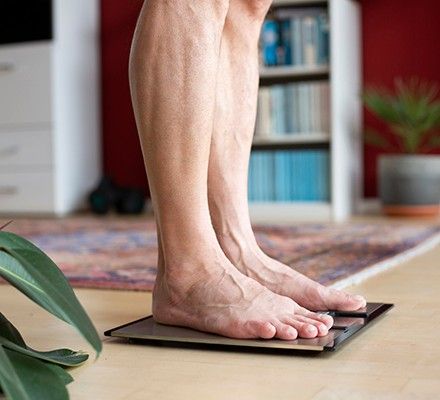When it comes to weight loss, there is no shortage of myths and misconceptions that can often derail your progress. In this article, we will debunk 10 common weight loss myths to help you separate fact from fiction and achieve your health and fitness goals more effectively.
Myth #1: You have to starve yourself to lose weight
One of the biggest misconceptions about weight loss is that you have to drastically cut your calorie intake to see results. In reality, starving yourself can actually slow down your metabolism and make it harder to lose weight in the long run. The key is to focus on eating nutrient-dense foods in the right portions to fuel your body and support your weight loss goals.
Myth #2: Cardio is the only way to lose weight
While cardio can be an effective tool for burning calories and improving cardiovascular health, weight loss is a multi-faceted process that also requires strength training, proper nutrition, and adequate rest. Incorporating a variety of exercises into your routine can help you achieve a balanced approach to weight loss and overall wellness.
Myth #3: Supplements are necessary for weight loss
While supplements can sometimes provide a boost to your weight loss efforts, they are not a magic solution and should not be relied upon as the primary method for losing weight. A healthy diet and regular exercise are still the most important factors for sustainable weight loss.
Myth #4: You can spot reduce fat
Many people believe that doing specific exercises targeted at certain areas of the body can help reduce fat in those areas. Unfortunately, spot reduction is a myth – you cannot choose where your body loses fat. Instead, focus on overall weight loss through a combination of diet and exercise to see results across your entire body.
Myth #5: Eating late at night causes weight gain
Contrary to popular belief, the timing of your meals does not directly impact weight loss. It is more about the total number of calories you consume throughout the day and the quality of the food you eat. Eating a balanced meal or snack before bed can actually help regulate blood sugar levels and prevent overeating the next day.
Myth #6: Carbs are the enemy
Carbohydrates have gotten a bad reputation in the weight loss world, but they are actually an important source of energy and essential nutrients. The key is to choose complex carbohydrates like whole grains, fruits, and vegetables over refined carbs like white bread and sugary snacks. Balancing your carb intake with protein and healthy fats can help support your weight loss goals.
Myth #7: Skipping meals helps you lose weight
Skipping meals can actually work against your weight loss efforts by slowing down your metabolism and causing you to overeat later in the day. Instead of skipping meals, focus on eating regular, balanced meals and snacks throughout the day to keep your metabolism and energy levels stable.
Myth #8: You have to cut out all your favorite foods to lose weight
Depriving yourself of your favorite foods can backfire and lead to binge eating or feelings of deprivation. It is important to practice moderation and balance in your diet, allowing yourself to enjoy your favorite treats in moderation while still focusing on nutritious foods that support your overall health and weight loss goals.
Myth #9: Weight loss is a linear process
Weight loss is not always a smooth journey – there will be ups and downs along the way. It is important to be patient with yourself and understand that progress takes time. Celebrate your successes, learn from your setbacks, and stay consistent with your healthy habits to see long-term results.
Myth #10: You have to be perfect to lose weight
Perfection is not necessary for weight loss – consistency is key. It is normal to slip up occasionally or have a bad day, but what matters most is how you bounce back and continue moving forward. Focus on making small, sustainable changes to your lifestyle that you can maintain in the long run for lasting weight loss success.
By debunking these common weight loss myths, you can approach your health and fitness journey with a more informed and realistic mindset. Remember that weight loss is a journey that requires patience, consistency, and a balanced approach to diet and exercise. With the right mindset and knowledge, you can achieve your weight loss goals and improve your overall health and well-being.

